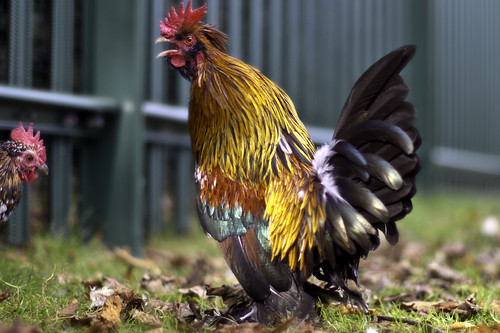Welcome to Word Buzz Wednesday, our roundup of the most interesting words we discovered this week. The latest: the idea of “just right,” the art of sleeping on the job, and a franchise queen.
lagom
“Unlike hygge, which aims to capture a feeling, lagom is an ethos of moderation.”
Madeleine Luckel, “Forget Hygge: 2017 Will Be All About Lagom,” Vogue, January 5, 2017
While hygge is the Danish concept of coziness, lagom is the Swedish idea of “not too much, not too little,” says Vogue. This Goldilocks mentality translates from Swedish as “enough, sufficient, adequate, just right.”
inemuri
“Inemuri has been practiced in Japan for at least 1,000 years, and it is not restricted to the workplace. People may nap in department stores, cafes, restaurants or even a snug spot on a busy city sidewalk.”
Bryant Rousseau, “Napping in Public? In Japan, That’s a Sign of Diligence,” The New York Times, December 16, 2016
Inemuri translates from Japanese as “sleeping on duty” or “sleeping while present,” says the New York Times. This idea of sleeping on the job “captures Japan’s approach to time, where it’s seen as possible to do multiple things simultaneously, if at a lower intensity.”
Inemuri is most common among “senior employees in white-collar professions,” and while both men and women indulge in the practice, “women are more likely to be criticized for it,” especially if they nod off in an “unbecoming” position.
Bean an Ti
“In his remarks, he called her ‘Bean an Ti’, woman of the house, a term that means far more in the original Irish than it does in translation.”
Niall O’Dowd, “America’s greatest center of Irish culture is going from strength to strength,” Irish Central, January 27, 2017
Bean an Ti has also come to refer to “a landlady who takes in students who wish to learn Irish in a family setting.”
boots and suits
“He is building ‘boots-and-suits’ alliances between skinhead soldiers and politically minded racists such as William Johnson of the American Freedom Party, who nearly sashayed into the Republican National Convention as an official delegate, until a reporter sniffed him out.”
Luke O’Brien, “My Journey to the Center of the Alt-Right,” The Huffington Post, November 3, 2016
The term boots and suits has a few different applications. It might refer to the military and administrators working together. Military Economics: The Interaction of Power and Money notes that getting the boots and suits — in this case, military, political, legal and humanitarian resources for UN’s peacekeeping efforts — “to work together can be a problem.”
It could refer to the service industry and the idea of a divide between blue collar (the boots) and white collar (the suits) workers. It also might mean a kind of style that’s “part of Texas politics” or iconic of the Beatles.
Harperite
“Because the women—who became known as ‘Harperites’—usually lacked the funds for the upfront costs, Harper loaned them the money to buy the franchise.”
Jaimie Seaton, “Martha Matilda Harper, the Greatest Businesswoman You’ve Never Heard Of,” Atlas Obscura, January 11, 2017
Harperite comes from the name Martha Matilda Harper, “a former servant girl from Canada,” says Atlas Obscura, who “created the American hair salon industry, designed the first reclining salon chair, and went on to establish retail franchising as we know it today.” These franchisees were dubbed Harperites, and while “Ray Kroc of McDonald’s is widely credited with being the father of American franchising,” Harper “beat him to it by 60 years.”






![[xmas display]](https://c7.staticflickr.com/4/3204/3117142334_25d97e1689.jpg)